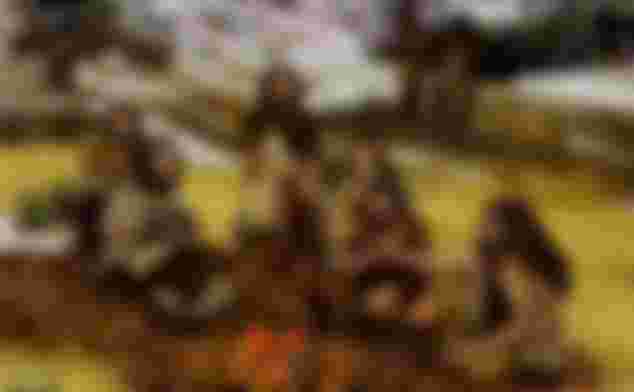
Does art imitate life? Or does life imitate art? How much, if at all, does cinema form and influence our mindset and attitudes to life? Let us discuss this relationship, as well as relationships generally, using the "American Pie", the jewel in the crown of modern American "coming of age and going off to college" movies. The plot is quite simple: four characters, each representing a particular approach to dating, are united by the same goal: to lose their virginity before going to college. They choose their targets, oil up their moves and it's a ready! set! GO!

To start off with, one cannot ignore that the movie carries two very important motifs within itself that are emblematic of the 'college movies' genre, and, seeing that the majority of those are produced in the US, especiialy the American college movies.
First, obviously, the setting: the classic "high school experience", which is in a lot of ways the survival of the fittest: not fittest as in the "strongest", but as in "being able to fit in the best". For those four dudes, the main characters, fitting in is about getting a taste of that "warm apple pie", aka getting laid. This seems to be an absolutely normal "teenage" desire, but when seen against the backdrop of the American culture, it becomes particularly interesting. It is well known that amongst the first Europeans to step on the soil of what is now the United States were the so-called Puritans - people who believed in chastity and staying "pure", hence the name. Some parts of and communities in America, for instance, the Mormon community, still maintain that all things sexual should be reserved for marriage. So, in a way, the behavior the characters in "American Pie" are displaying is not just caused by the hormones that turn teenagers into sex-obsessed monsters, but also can be understood as a social commentary of sorts, a tribute to the changed morals and societal norms in the US.
Second, it depicts the relationship between the sexes in a very particular way. We see something called "objectification" of female characters by the male quartet: for three out of the four guys, a girl is a means to an end, she is not an end in herself - in other words, they aren't pursuing a girl because they like her, they do it because winning her over will result in them boosting their own social standing. Even though later in the movie the 3/4 of the "wolf pack" seem to grow out of the belief that "sex makes you cool" and seemingly experience love each in his own way, the love-subplot seems to be secondary to the "chase" sub-plot, and rightfully so: from a producer's perspective, a desperate virgin is an easier target for jokes and gags than a person in love. It's not that I'm trying to attribute the behavior of female objectification solely to Americans, it's more that it seems to be a common theme in those 'college movies': guys aren't even oblivious that they only want 'da pussy', no, it is embedded in thei mindset that in those formative, college years, you must have fun as much as possible, which necessarily involves shagging a peng bird every now and then.

It is already getting hard for me, the author, to distinguish whether I've made that last point discussing the psychology of the characters of a college movie, or discussing the psychology of the guys I've met at uni myself. To me, there is a massive overlap between actions of the American Pie characters, and the 'lads' (UK word for 'dudes') and how they talk about and act around women, which indicates strong overlap between 'art' and 'life'. So how could we give a conclusive answer to this type of the 'chicken and egg' problem? Which inspires what, art or life?
Well, though it is hard to see how one could base their entire personality around a made-up character, it is not unheard of. I definitely tend to get impressed with particularly well-written novel or film characters for a while, and catch myself using the same kind of language as them, or maybe, when faced with a difficult decision, wonder for a moment: would would he/she (the character) do? It is nothing other than a search for a role model, and God knows, we all need a good role model every now and then. It's funny: God would actually surely know all about being a role model: this is kind of his main purpose, isn't it? Here, however, we are inquiring into something much bigger than an individual, namely a way of thinking. I'd argue that for art to give birth to a whole new way of thinking, it must be some pretty hecking good art, and very invasive art at that. Art, however, in my opinion, is not so much an influencer, but rather a cultural 'landmark': it's a mere indicator, a kind of snapshot of the relationship between the creator, a tiny bug, and a great big construction that is the civilisation. If seen this way, art can never truly be prescriptive - it can't tell you what to do, to prescribe a course of action, it is always descriptive.

Our history and culture, on the other hand, are two megaladons, in reaction to which art is produced. And, truly, if we were to consider how long it was normal to treat a woman like a subordinate, then like a object of pursuit and affection, and then like a capricious screaming child, it is no wonder that traces of that 'normality' are incorporated into movies such as the American Pie. It's also interesting how slowly, but also quite quickly the body of cultural opinions changes: it took so long for women to 'win' the right to be equal ('win' in quotation marks because they never lost it, the society was just a "bit" fucked up), but, with 20-odd years lapsing from the American Pie release date, we no longer can wholeheartedly laugh at the movie without realising quite strongly how reprehensible the 'psychology' of the characters is. In fact, today, one can't help but see it as a crude depiction of human mating rituals, and about as far from what the 'norm' should be as we are from the Stone Age.
Sources (pictures):
https://thetab.com/uk/liverpool/2014/02/22/5-signs-of-being-a-definitive-lad-11933
https://futter.kleinezeitung.at/incels-wenn-sexuelle-frustration-in-frauenhass-umschlaegt/
https://www.kino.de/film/american-pie-1999/bilderstrecken/american-pie-so-sehen-die-stars-heute-aus/




Yes, Little America is based on true stories that were first published by Epic Magazine, a subsidiary of Vox Media, which now owns The Verge. Also known as the Civil Rights Movement, it was a collection of social, political, and economic initiatives focused on improving the lives of African Americans. To learn more about this, go to https://nativenewsonline.net/advertise/branded-voices/impact-of-the-civil-rights-movement-on-american-society/ People of color have gone a long way in their quest for equal rights, from being treated inhumanely and denied the opportunity to vote to have someone from their own community lead the country.